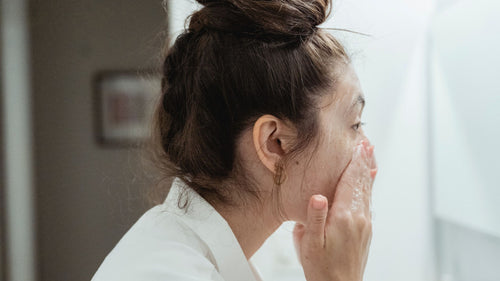4. Support your microbiome
There are two ways to give the skin's good bacteria a push – through the stomach to the skin or directly on the skin. With fibres, live bacteria and substances that bacteria produce, the balance in the skin's microbiome can be favoured. In skin care, you should keep track of biotics, which include pre-, pro- and post-biotics used to enrich our microbiome.
These mean:
Prebiotics = the fibers that act as nutrition for the good bacteria
Probiotics = the good, live bacteria
Postbiotics = substances produced by the good bacteria, for example anti-inflammatory substances or moisture binders.
Instead of eliminating our microbes at all costs with antibacterial agents such as preservatives, we should take care of our friends in the best possible way. Maybe add new probiotic members or invite our good bacteria to a prebiotic dinner?
Because as unpleasant as it is to start cleaning and vacuuming the dining room during a dinner, it is unpleasant for our skin bacteria to be bathed in all the antimicrobial substances that we apply to our skin on a daily basis. This is one of the reasons why we at Skinome have developed fresh skin care without traditional preservatives.
5. Have a holistic view
Everything you put in your body, from carrots to tobacco smoke, affects your skin. You can make your skin healthier by exercising - or sicker by stress. In fact, it is believed that 75 percent of our skin status is determined by our lifestyle and that only 25 percent is in our genes. If you are interested in reading more about how food, stress, exercise, sleep, scare time and more affect your skin, my tip is to read our article "7 lifestyle factors that affect your skin" which you can find here .













